UCLUELET, Canada- When you're a gypsy by choice, ever searching for new horizons, seeing it all seems possible. Then one day you take a hard look at the cluster of pins stuck into your world map, each one marking a memory, and you realize how much you've missed. For me, Vancouver Island, 299 miles long and 50 miles wide, off the southwest coast of British Columbia, was one of those places. 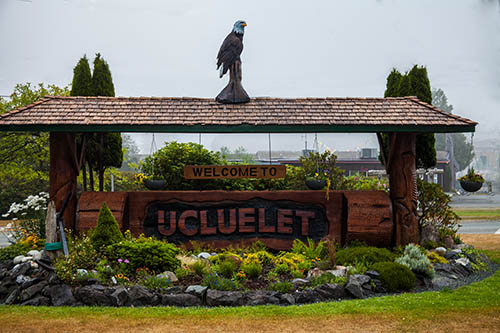
Then late last August -- said to be Ucluelet's brightest, sunniest month -- I discovered that however foreign Canada may seem, Vancouver is practically next door. Early morning flights from Los Angeles, San Francisco and other western U.S. cities arrive in B.C.'s capital city, Victoria, around lunch time. Add an hour to rent a car and you're on your way. Take a week and you can tour most of the lower half of the island. Or -- what a surprise! -- spend a four-day weekend in Ucluelet, on the rugged southwest coast (you-CLUE-let). We knew absolutely nothing about the place, but like Timbuktu and Zanzibar (and similar exotics) the name alone was irresistible.
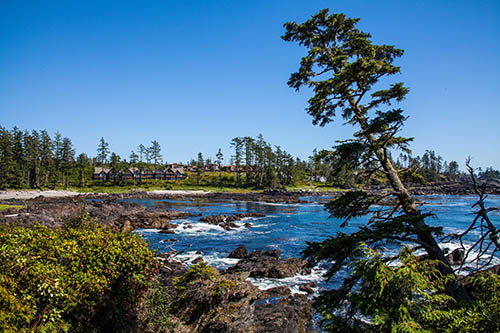
At first glance, Ucluelet looks like any other end-of-the-road fishing village. But a closer look reveals homes, the lighthouse, the Aquarium, and some of the Pacific coast's most spectacular scenery, laid out beside the Wild Pacific Trail. Residents jogging for exercise take the views for granted, breezing past each rocky cove and swirling pool. But newcomers, over-awed by untamed nature, take it slow. 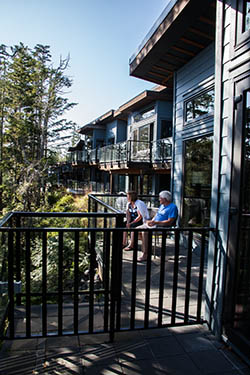
After checking into lodgings at the Black Rock Resort, I stepped out on the balcony and propping my feet up on the railing, sat back to watch the tide surge landward. And the longer I sat, the harder it was to look away. The unstoppable mass of the world's largest ocean, each wave rising, cresting, and rushing onshore over the rocks, made everything else seem unimportant.
That night's dinner, by candlelight on the outdoor deck at the resort's Fetch Restaurant, was similarly memorable. It could have been the fresh air, or the just-caught halibut and salmon that kept us lingering at the table, but it was the sunset fading to twilight that sticks in my memory. And that was just the beginning. Early the next morning, while the tide was ebbing and kayakers were pushing away from the pier, we checked into Jamie's Whaling Station for a coastal cruise and bear watching excursion.
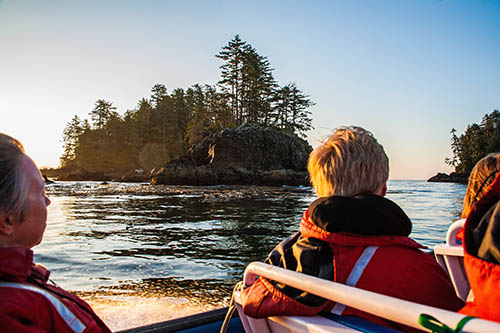
Why so early? When the tide is out, the bears emerge from the forest to look for food in the exposed inter-tidal zone. Digging in shallow pools and under rocks and logs, their dark brown and black coats are easy to spot. So before the sun was over the tree tops, the boat was already beyond the harbor, speeding toward the Broken Islands archipelago.
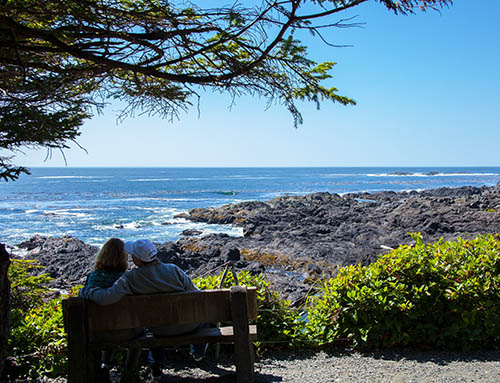
"Keep an eye out for green swales along the shoreline, open places between the trees," said our guide and boat Captain, Scott MacDonald, alternately steering and peering through binoculars. "Most are ancient Indian village sites, but a few mark early homesteads. And those huge trees with the clumps at the top? Those are eagles' nests in 700 to 800 year-old trees. The birds reuse and rebuild the nests every year, which get bigger every century. They can weigh up to a ton." 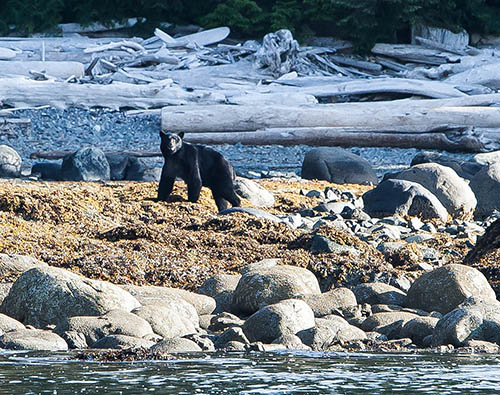
Moving into toward shore, MacDonald spotted the first bear, digging among the rocks. For five minutes we bobbed on the water, watching him move from one log to another. Finally he looked up, sniffed the air, caught our scent and galloped away through the trees.
"I'm glad to see he's wary," said MacDonald. "It's too easy for poachers to move in and get off a shot." Nearby a harbor seal sunned on a rock, unafraid. Blue herons waded in the shallows. Huge rafts of bull kelp floated by, sinuous green strands buoyant on air pods. 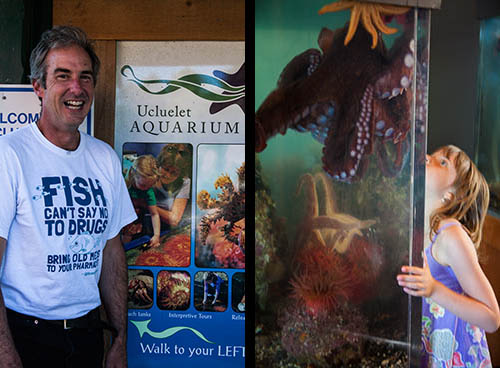
"See those logs washed up on the beach?" asked MacDonald. We'd seen them, giant tree trunks floating near the shore. "Most of those fell off commercial ships. I built my house out of those things," he added. Back in the Ucluelet harbor, MacDonald apologized for finding just two bears, and those at a distance. No problem, we said. The trip itself, the dozens of tiny islets, the kelp, the seals and the eagles' nests, were what we came to see.
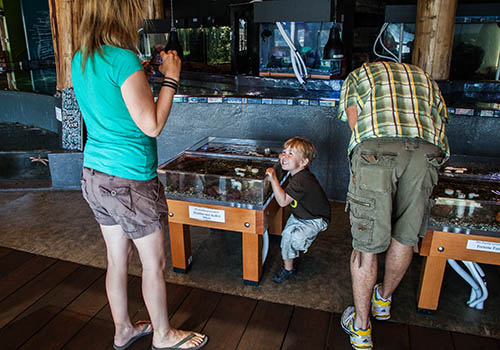
"But you know," said Macdonald, "the sad thing is that nature tours don't sell. Nobody signs up just to see nature. You've got to show them the big stuff, bears and whales. Then, once we're out there, they get it. They see what keeps us coming back. And that's worth it." 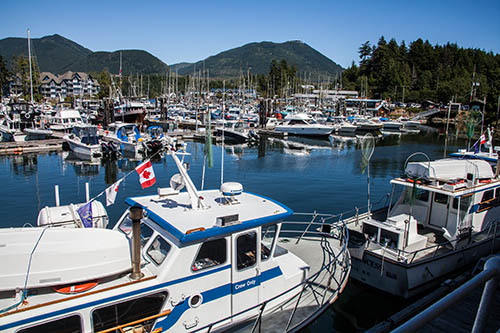
TRAVEL TIPS: Fly to Vancouver and on to Victoria, at Vancouver Island's southern tip. Ucluelet is north and west, about three hours by car. Good roads, ample lodging and frequent shopping areas make travel easy. Visitors need a passport to enter Canada, and to re-enter the U.S. For more information, see www.hellobc.com; or to tourismvictoria.com.
Writer-traveler Anne Z. Cooke is currently hatching another British Columbia trip.